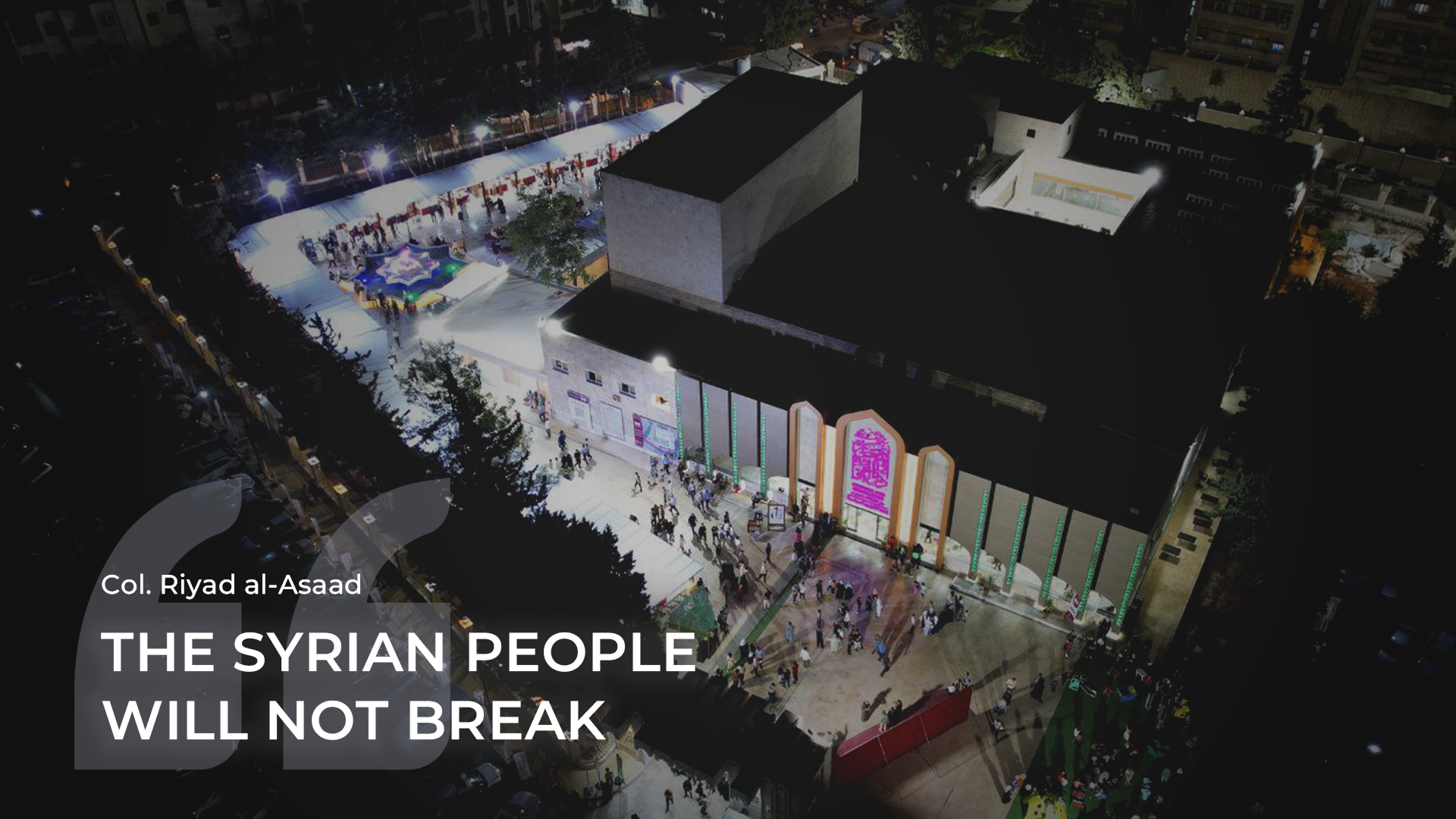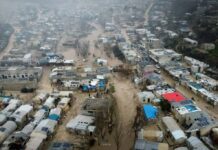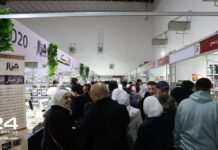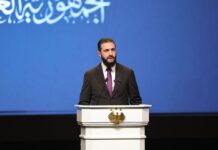
The third annual Idlib Book Fair concluded on September 14, 2024, leaving a lasting impact on the cultural landscape of northern Syria. Hosted at the Idlib City Cultural Center, this year’s event, themed Bridging Tradition and Modernity, featured more than 150,000 books from 17,000 titles provided by 44 libraries from Syria and Turkey. The fair, which has grown into a beacon of intellectual and cultural revival, showcased not only literature but also art, heritage, and intellectual discourse.
This year’s fair expanded significantly from its previous editions, attracting a diverse audience that included literary enthusiasts, scholars, families, and community leaders. The event offered daily poetry evenings, seminars, and a wide range of cultural activities, making it the most comprehensive fair yet.
More than Just Books
Abu Muhammad al-Jolani, leader of Hayat Tahrir al-Sham (HTS), emphasized the significance of knowledge in his opening address, stating, “Knowledge remains the lost property of humanity, for knowledge is an inexhaustible treasure. The more people learn, the more they need it. There is no nation that has learned and then acted upon what it has learned, except that Allah has increased its elevation, strength, and honor.” His words reflected the underlying mission of the fair – to promote education, culture, and intellectual discourse in a region rebuilding from conflict.
The fair’s success was observed by many attendees. Translator and author Muhammad Hasnawe highlighted the exhibition’s role in fostering societal change, telling L24, “We consider the exhibition to be part of the process of change, part of the revolution, part of rebuilding ideas, rebuilding the social fabric, and activating the thought of the revolution in the process of civilizational effectiveness, building society, and building the future.”

History and Culture
In addition to its rich literary offerings, the fair featured several artistic and historical exhibitions. The Arabic Calligraphy Corner drew large crowds, showcasing the intricate beauty of Arabic script, while the Antiques Corner gave visitors a glimpse into Syria’s past, featuring traditional tools, ancient utensils, and crafted swords.
A special display dedicated to Palestinian heritage showed the deep cultural ties between Syrians and Palestinians. This cause was central to the cultural and ideological focus of the fair, with Palestinian songs, poetry, and historical artifacts taking center stage. A seminar with Dr. Nawaf Al-Takrouri, the Chairman of the Palestinian Scholars Association, and Dr. Muthanna Al-Zahri from the Muslim Scholars Association in Iraq, was held about the current state of affairs in Palestine and Syria.

“The people here in northern Syria identify deeply with the Palestinian cause,” Dr. Yasin Alloush of Idlib University, explained to L24, “having experienced similar destruction and suffering. We consider that our cause and their cause are one…our enemy and their enemy are one and the same.”
Colonel Riyad al-Asaad, one of the founders of the Free Syrian Army, expressed optimism about the fair’s impact, stating, “The Idlib Book Fair proved that the differences existing in the liberated areas are minor differences. The existing interaction gives you hope for the future.” His words resonated with many attendees who viewed the event as a sign of progress and prosperity for the region.
Community and Connections
Poetry evenings were an integral part of the fair, offering a more intimate atmosphere for cultural expression. Local and international poets recited their work, and the Book Fair Salon provided an informal venue for discussions on topics ranging from revolution to societal change, many of which were broadcast live on social media. The fair also hosted book signings, which fostered direct engagement between authors and readers.
For many, the fair offered not only a literary experience but also a chance to reconnect with friends and family. Alloush, commented, “These thousands of books and exhibits tell the world that we are a nation capable of rising again. What also pleases visitors is that they may meet brothers and loved ones they have not seen for a while — it is as much an exhibition of loved ones as it is of books.”

Then there were those who found the fair a vehicle for reconnecting with the country of their birth, as was the case with Abu Marwan who came all the way from Britain with his family and was pleasantly surprised by what he found. “I imagined destruction, shelling, displacement, and gangs,” he told L24, “we saw acts of respect, freedom, good things, and a good future.”
A Symbol of Resilience
The significance of the Idlib Book Fair extends beyond its cultural offerings. For many in northern Syria, the event symbolizes resilience and hope in the face of adversity. The fair provides a rare opportunity for Syrians to access literature that was once banned under the Assad regime, fostering a new era of intellectual freedom. It also reflects the community’s ongoing efforts to rebuild its cultural identity after years of conflict.
Sheikh Ali Nayef Shahoud of the Syrian Islamic Council noted the importance of such events in reviving Syria’s cultural and religious heritage, especially after decades under the divisive and oppressive regimes of the Assad family who brutally suppressed the Sunni identity of many Syrians.

Until Next Year …
As northern Syria continues to rebuild, the third annual Idlib Book Fair stands as a testament to the region’s perseverance and dedication to knowledge. “These people will not break,” Colonel al-Asaad emphasized, a sentiment echoed by many who attended the event. Despite the challenges, the fair represents a hopeful vision for the future – one where literature, art, and intellectual exchange continue to thrive.
This year’s Book Fair was more than simply a cultural gathering, it acts as a reflection of northern Syria’s determination to preserve its intellectual freedom, foster unity, and engage with broader political realities. As the fair develops, it will continue to play a vital role in shaping the cultural and intellectual future of the region and offering a platform for dialogue extending far beyond its borders.








